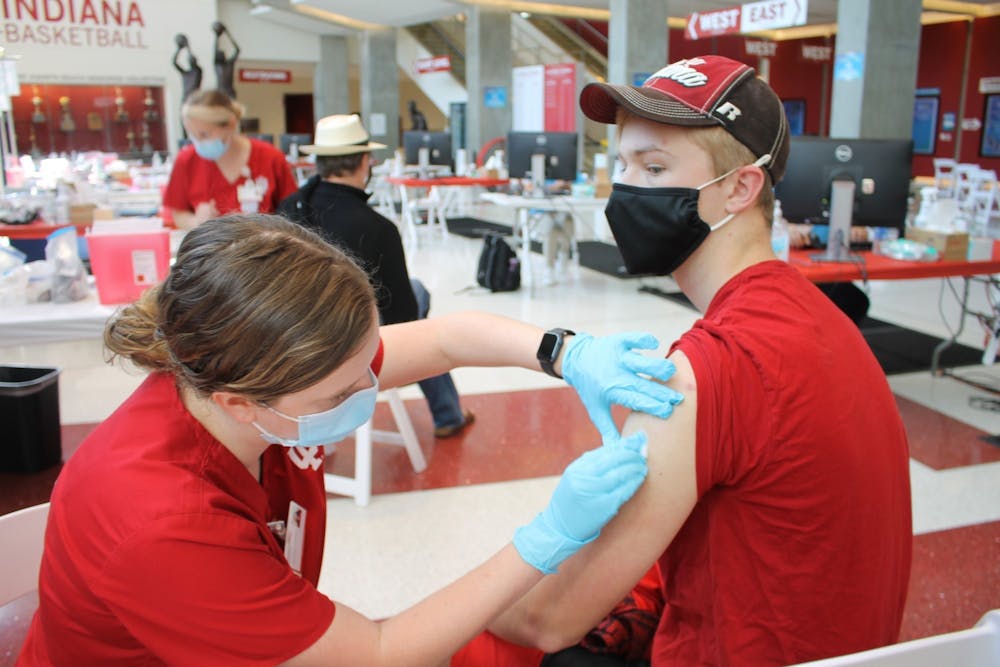Over 2.5 million people are fully vaccinated in Indiana and about 67,000 are fully vaccinated in Monroe County according to the Indiana State Department of Health’s Vaccine Dashboard.
About 10% of Americans are somewhat hesitant and are waiting to get vaccinated according to The Harris Poll. A petition, claiming that the vaccine is not safe, is asking IU to retract their vaccine mandate. It has over 11,900 signatures as of Sunday.
Vaccine misinformation and mistrust need to be addressed in a compassionate and patient manner, Aaron Carroll, IU Director of Surveillance and Mitigation, said.
“People are always looking for a quick and easy way to change someone’s mind, but people have had 10 or more years to build up opinions, and those won’t change overnight,” Carroll said.
Carroll said it’s important to understand where someone’s mistrust of the COVID-19 vaccine comes from. It might stem from listening to the wrong sources, a misunderstanding of the risks or a mistrust of the healthcare system.
A common misconception about the COVID-19 vaccine is that it was developed too quickly, but Carroll said the process went fast because scientists had already done work on coronavirus vaccines from research on the diseases SARS and MERS.
“More scientists were probably working on COVID-19 research at the same time than have ever worked on the same issue in the history of man,” Carroll said. “We should expect this makes things go faster.”
Some are concerned because the vaccines were granted FDA Emergency Use Authorization, but the Emergency Use Authorization does not skip any steps involving safety or ethics. It allows companies to skip over some negotiations such as marketing techniques and labeling on the drug, Carroll said.
People are also concerned about the COVID-19 vaccine because they are unfamiliar with mRNA technology, John Patton, Blatt Chair of Virology said.
Traditional vaccines, such as the flu vaccine, work similarly to mRNA technology, Patton said. The flu vaccine contains inactive virus particles, such as proteins, which cause the body to develop antibodies that can be used to fight off a future infection from the same virus. The body can make its own proteins through instructions from mRNA which leads to antibodies that can be used to fight off future infections, according to the CDC.
Patton said people should still get vaccinated even if they’ve been infected with COVID-19. It is difficult to determine what someone’s antibody level is from natural infection and how long the antibodies protect them from re-infection.
“It makes a big difference that vaccinated students are willing to advocate for the vaccine. If they have friends that are fearful, they need to step up and walk them through getting vaccinated,” Patton said.
Ana Bento, IU Assistant professor in Epidemiology and Biostatistics, said that someone’s decision about getting a vaccine affects the whole community. She said students could potentially infect or protect each other based on their decision.
It’s important to approach every piece of information about the vaccine with a critical mind and to thoroughly read and understand information before amplifying it, Bento said.
Bento said students should keep themselves as informed as possible and only pass on current and factual information to stop the spread of misinformation.
“There isn’t just one source of misinformation,” Bento said. “It’s much more pervasive than that.”




